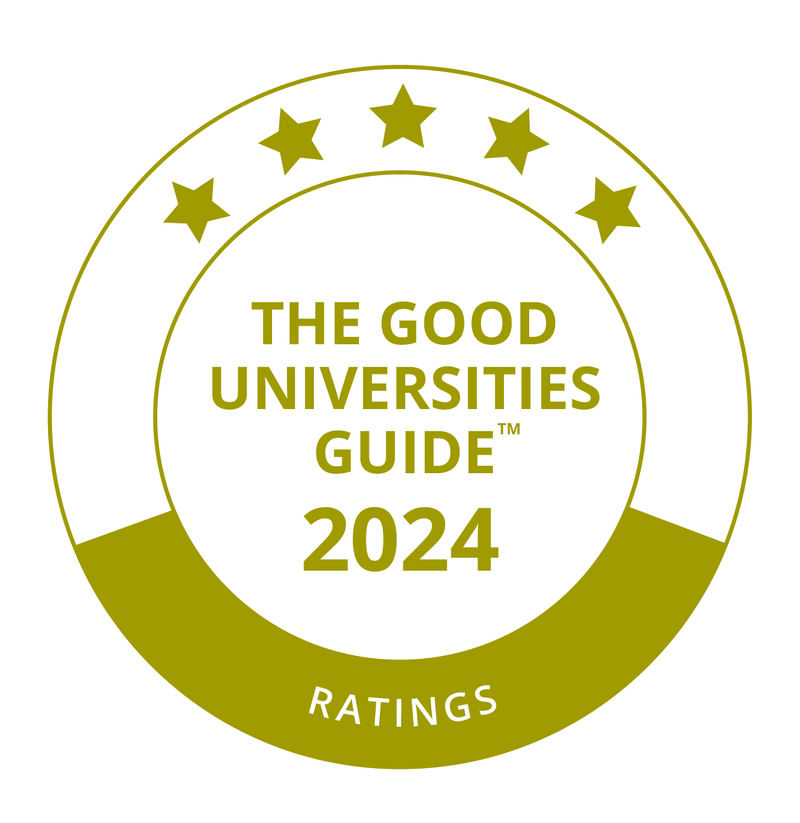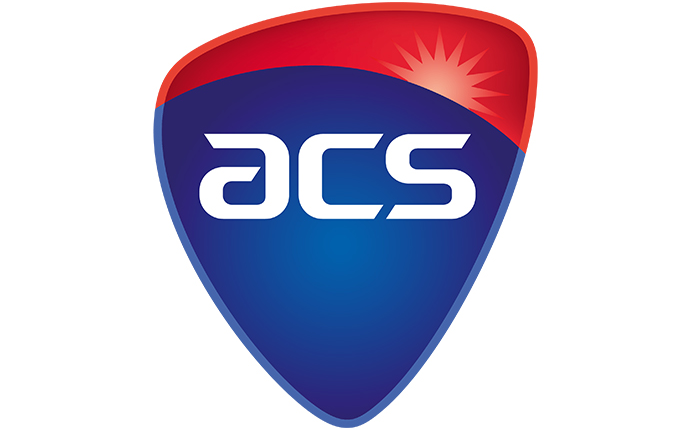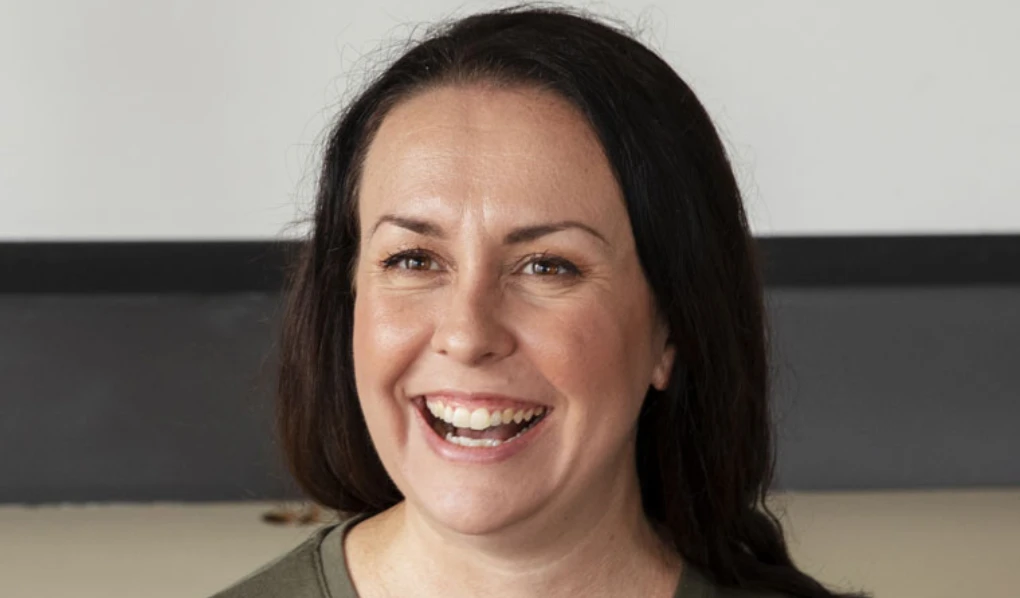100% Online
Bachelor of Information and Communication Technology – Network Technology
Build and explore the expanding networks of the Information Communication world where data is key.
100% Online
Learning Mode
Undergraduate
Qualification
3 years full-time
Duration
Mar, Jul, Nov
Start Date
24
Units
$1,164.25*
Fee Per Unit

‘The flexibility to study at my own pace and my own time was perfect and allowed me to finish my degree in around three years, using every [teaching period] I could.’
Jacob, Swinburne Online graduate
22.2%
Network Engineer roles are predicted to increase by 22.2% over the next 5 years, meaning now is the perfect time to start a career in Network Technology.

Our Information Technology courses have been awarded a five-star rating by the Good Universities Guide for skills development.
With technology developing at an accelerated rate and businesses relying increasingly more on networks to manage, store and transfer their valuable data, now is the perfect time to study Network Technology. The Bachelor of Information and Communication Technology – Network Technology course covers the fundamentals of supporting network infrastructures and security while working with the latest software and hardware in the industry.
The Networking Technology major provides a rounded education in diverse fields, including network architecture, modern network security, implementing intrusion prevention, cryptography, managing virtual private networks, and routing principles and protocols. You will also partake in projects for industry partners that will provide valuable practical experience and skills that will be critical as the industry evolves. The course also covers essential workplace skills to ensure an easy transition into the workforce, including effective communication and project management, stakeholder management, and legal and ethical best practices.
This course has been streamlined to ensure a focused look at the Network Technology major. Once completed, you can also choose to further focus your degree with an optional Advanced Minor in Cyber Security or Data Science. Or choose electives to round out your knowledge.
What will you learn?
- Project Management: Identify the need for ICT intervention, and work with stakeholders to research and implement effective solutions.
- Situation Analysis: Source and apply the generic and specialised software tools used by IT professionals to improve processes and outcomes.
- Professional Communication: Communicate effectively in a professional context, adapt communication style to a given audience, work efficiently in a team and guide and team members to success.
- Understanding Technologies: Demonstrate an appropriate knowledge of the technologies that make up ICT infrastructure and articulate the relationships and interdependencies between technologies.
- Data Management: Understand how to securely store and manage large volumes of user data.
Want more information?
Fill in your details to receive detailed information regarding:
- Career and industry pathways
- Course information
- How online study works
- Information about course fees and how to apply
Flexible study
Flexible study
What does flexible study mean for me?
Studying at Swinburne Online gives you the freedom to study how it suits you. Decide when and where it fits in with your life and tailor your study journey to your own needs. Get a world-class degree without giving up what’s important.
Flexible study at Swinburne Online
Personalised study journey
Set a study pace that work with what’s going on in your life. If you’re unsure about how much you can commit to, we can offer part-time options and the option of increasing your unit load as your progress. Interested in fast-tracking your studies? You also have the opportunity to complete up to 12 units per year.
Fit study around your life
You don’t have to put your life on hold to study. Prioritise what matters to you and fit study around family, work and personal commitments through a course that is flexibly designed for online learners.
Multiple intakes
Start when it suits. Swinburne Online offers multiple intake dates and flexible unit availability, so you can choose when you begin your studies or if you need to take a break.
7-day support
Flexible study requires flexible support. As a Swinburne Online student, you’ll have support for extended hours, seven days a week. Student Advisors available to help with anything from tech support to research advice, and dedicated online tutors in each of your units.
Structure
Structure
Your course structure
The Bachelor of Information and Communication Technology – Network Technology consists of 24 units. All students are required to complete the eight core units, eight Network Technology units, and the option of one or two advanced minors (Cyber Security or Data Science) or elective units to complete the course requirements. Specialise your knowledge and gain the skills needed to achieve your unique career goals.
In your final year, you will complete a Capstone Industry Project unit that combines your theoretical knowledge with practical scenarios. This unit aims to consolidate and integrate your learning with real-world practice and facilitate a successful transition from academic learning environment to work environment.
Network Technology major
In the Network Technology major, you will learn to plan and deploy secure network systems using current practices and IP technologies, network security and scalable server deployment. This major is also a way to prepare for CISCO certification.
Data Science advanced minor
Learn key concepts and techniques in data science and big data analytics, and data visualisation principles.
Cyber Security advanced minor
Understand the nature of security threats to IT systems and networks, and how to identify and rectify security breaches.
Studying an ICT course with Swinburne Online is a unique opportunity. Our courses are at the forefront of industry and provide you with the practical skills to success come graduation. View all units in your bachelor’s degree.
View All UnitsHow you'll learn
How you'll learn
Gradual release of responsibility model
The Bachelor of Information Communication Technology utilises the gradual release of responsibility (GRR) pedagogical framework – a model of learning that maximises student comprehension and ensures that you will never feel overwhelmed or left behind during your studies. Under this framework, you will be offered optional weekly synchronous sessions in which key skills are discussed and demonstrated, as well as access to the asynchronous discussion boards.
Learning designed for online
Your study journey with Swinburne Online is tailored to the digital space. You’ll study in a dynamic virtual classroom environment and interact with your peers in the custom-built social platform. You will also receive support at the times you need it from advisors who understand studying online.
Online classroom
You’ll complete each of your units in Canvas, your online classroom, and be guided through coursework by an online tutor with real-world experience in your field of study. Canvas is where you’ll access classes, assignments and discussion boards with your peers.
Online campus
The Student Hub is your online campus, where you’ll access the support and resources to assist you throughout your study journey. From managing your course to technical support and library resources, you’ll find it all in one easy location.
Tailored support
Swinburne Online will be there for you each step of the way. From enrolment through to graduation, we offer extended, flexible support in each of your units and advisors to assist with any queries.
Entry requirements
Entry requirements
Non-Year 12 entry
- Completion or partial completion of an approved tertiary qualification (including certificates IV (completed), diplomas, advanced diplomas, associate degrees and degrees).
- Applicants without a formal qualification may be considered for entry if they have significant and relevant work experience and/or upon completion of the STAT test.
Year 12 entry
Successful completion of the Victorian Certificate of Education (VCE) or its equivalent, such as an interstate or international Year 12 qualification. Minimum ATAR requirements may apply.
VCE pre-requisites
VCE Units 3 and 4: a minimum study score of 25 in any English (except EAL) or 30 in English as Alternate Language (EAL) or equivalent.
If you are applying as an international student, please view the English Language Requirements.
Fees
Fees
The estimated annual fee for this course is $1,164.25*. There are 24 units in the Bachelor of Information & Communication Technology, each unit is worth 12.5 credit points.
*Unit fees are subject to change annually.
Commonwealth Supported Places (CSP)
Swinburne Online offers Commonwealth Supported Places (CSP) for this course to eligible domestic students. A CSP is a subsidy supplied by the Australian government, meaning you do not need to pay a significant portion of your course fees.
With a CSP, the estimated annual fee for this course is $9,314*. This is based on completing eight 12.5 credit point units in one calendar year.
Commonwealth provided loans are available to assist eligible students to pay their course fees and there are a range of university, government and privately funded scholarships and prizes.
Discover more information about HELP loans.
Course fees will be affected by a student’s unit selection and any credit awarded in recognition of previous academic experience.
This course is offered to domestic and offshore international students. Depending on your citizenship, you may be eligible for a Commonwealth Supported Place.
Domestic students also contribute to student services and amenities via an annual fee.
Scholarships
Scholarships are available for both commencing and current students. You may be eligible for Swinburne Scholarships.
Career Outcomes
Career Outcomes
Stay ahead of the curve with Swinburne Online
Jobs in technology are some of the most well-paid, stable and flexible in Australia. Our graduates work in a range of rewarding roles and industries within tech. The Bachelor of Information and Communication Technology – Network Technology prioritises enhancing your practical capabilities so that you can graduate with a work-ready skill set. You will:
- work on an ICT capstone project unit
- learn the workplace skills that underpin and enhance all your technical knowledge
- learn from industry leaders
Systems Implementation Manager
Manage a team of implementation specialists responsible for the implementation of technical systems, software and hardware.
Information Security Specialist
Analyse existing security procedures and suggest changes for increased efficiency and security.
Cyber Security Lead
Ensure that all work completed in IT are assessed in terms of vulnerabilities and exposure to attack.
Systems Architect
Objectively analyse and recommend the correct combination of IT requirements components to achieve specific business goals.
Data Warehouse Architect
Design and maintain complex data management solutions that are accessible and secure.
Network Engineer
Plan, develop and implement computer network and system services, and find effective solutions to network issues.

Accreditations

The Bachelor of Information and Communication Technology is accredited by the Australian Computer Society (ACS) at the professional level.
Testimonial
‘I truly valued the ability to study at my own pace, and to be able to absorb all the concepts in my own space at home.’
Lauren
Swinburne Online graduate
